Insights into the physical world anchored in location analytics

INSIDER
Report
10 Top Brands to Watch in 2026Meet the ten retail and dining powerhouses, including H-E-B, Walmart, and Dave’s Hot Chicken, redefining success and winning consumer loyalty in 2026.
Placer Research
January 12, 2026
Industry Trends
Year-Over-Year Visits to Grocery Stores by State
Article
Article
Yum! Brands Navigates QSR Headwinds in Q4The Kroger Co, is a leading player in the grocery store space, operating its epon lorem ipsum dolor sit amet, consectetur adipiscing elit, sed do eiusmod tempor incididunt ut labore et dolore magna aliqua. Ut enim ad minim veniam, quis nostrud exercitation ullamco laboris nisi ut aliquip ex ea commodo consequat. Duis aute irure dolor in reprehenderit in voluptate velit esse cillum dolore eu
Ezra Carmel
Jan 30, 2026
2 minutes
Article

Article
The Demand-Side Story Behind Saks Global’s BankruptcyThe Kroger Co, is a leading player in the grocery store space, operating its epon lorem ipsum dolor sit amet, consectetur adipiscing elit, sed do eiusmod tempor incididunt ut labore et dolore magna aliqua. Ut enim ad minim veniam, quis nostrud exercitation ullamco laboris nisi ut aliquip ex ea commodo consequat. Duis aute irure dolor in reprehenderit in voluptate velit esse cillum dolore eu
Shira Petrack
Jan 29, 2026
2 minutes
Executive Insights

Executive Insights
Visiting the Great OutdoorsThe Kroger Co, is a leading player in the grocery store space, operating its epon lorem ipsum dolor sit amet, consectetur adipiscing elit, sed do eiusmod tempor incididunt ut labore et dolore magna aliqua. Ut enim ad minim veniam, quis nostrud exercitation ullamco laboris nisi ut aliquip ex ea commodo consequat. Duis aute irure dolor in reprehenderit in voluptate velit esse cillum dolore eu
Caroline Wu
Jan 28, 2026
3 minutes
Article
.avif)
Article
Winter Storm Fern Sparked a Retail RushThe Kroger Co, is a leading player in the grocery store space, operating its epon lorem ipsum dolor sit amet, consectetur adipiscing elit, sed do eiusmod tempor incididunt ut labore et dolore magna aliqua. Ut enim ad minim veniam, quis nostrud exercitation ullamco laboris nisi ut aliquip ex ea commodo consequat. Duis aute irure dolor in reprehenderit in voluptate velit esse cillum dolore eu
Shira Petrack
Jan 27, 2026
3 minutes
Latest Articles
_texasroadhouse_dine.png)
Article
Q4 2025 FSR Trends Emphasize Strategy, Value, and Footprint DisciplineShira Petrack
January 26, 2026
3 minutes
Article
Chipotle’s Growth Is No Longer Just About New RestaurantsLila Margalit
January 22, 2026
3 minutes
Article
What Other QSR Brands Can Learn From McDonald’s Loyalty StrategyShira Petrack
January 21, 2026
3 minutes
Article
Opportunity vs. Operational Reality in Dollar Tree's 99 Cents Only AcquisitionShira Petrack
January 20, 2026
3 minutes
.avif)
Article
Which Gym Is Right For You in 2026?Using AI-powered location analytics, we reveal which gyms are less crowded at peak times, skew younger or older, and attract the most singles.
Ezra Carmel
January 16, 2026
4 minutes

Article
Placer.ai December 2025 Office Index: ‘Tis the Season to WFHLila Margalit
January 12, 2026
3 minutes




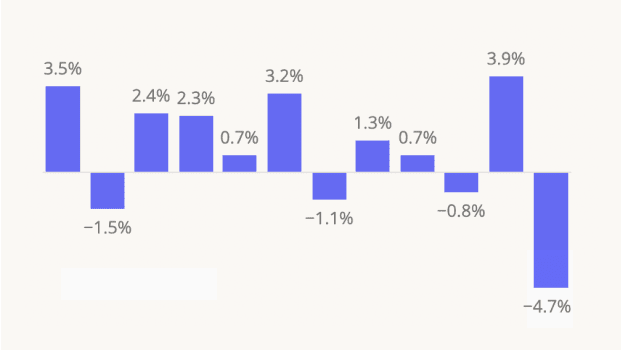
.png)
.png)

.png)
.png)









.png)
.png)







.svg)